Business
Canada’s Future Is On The Line If We Cozy Up To China

From the Frontier Centre for Public Policy
A recent Globe and Mail column’s push for closer ties with China overlooks the risks. Canada’s future depends on trusted democratic allies, not autocrats
The recent Globe and Mail column, “Let’s free ourselves of the U.S. and forge closer ties with China”, by Julian Karaguesian and Robin Shaban, reveals a troubling lack of historical awareness and strategic judgment.
Marketed as a call for Canadian economic independence, it amounts to an argument for deeper dependence on an authoritarian regime that uses coercive diplomacy, illicit finance and political interference to erode democratic sovereignty.
Canadians should reject the notion that closer alignment with Beijing strengthens our independence. The opposite is demonstrably true.
The authors praise China’s economic dynamism and technological progress but ignore the context in which these gains were made. They are not the result of fair-market innovation, but of systematic intellectual property theft, forced technology transfers and vast state subsidies that distort global competition.
These practices are well documented by sources such as the U.S. Department of Justice’s China Initiative, CSIS’s 2023 Public Report, and a 2023 U.K. Parliament report issued under the Five Eyes alliance—a security and intelligence-sharing partnership among Canada, the U.S., U.K., Australia and New Zealand.
Proposing deeper technological engagement with a regime known for embedding backdoors in products like Huawei hardware, which Canadian security agencies have flagged as a national security risk, and for weaponizing supply chains is dangerously naïve. This isn’t innovation; it’s strategic infiltration that introduces unacceptable risks into Canada’s economic infrastructure.
Equating Canada’s alliance with the U.S. to strategic subservience misrepresents the nature of cooperation in a rules-based international order. While the U.S. is imperfect, it remains our most reliable economic and security partner—anchored in shared democratic norms, integrated defence under NORAD and institutions that ensure transparency and accountability. These foundations stand in sharp contrast to the opaque and coercive practices of the Chinese state.
Beijing has made clear it does not operate as a predictable or principled partner. Its use of retaliatory diplomacy—such as the politically motivated detention of Michael Kovrig and Michael Spavor, bans on Canadian agricultural exports and the expansion of United Front influence operations (covert and overt efforts by the Chinese Communist Party to sway public opinion and policy abroad)—demonstrates a pattern of intimidation.
According to CSIS and allied intelligence agencies, the Chinese Communist Party is not merely pursuing commercial access but long-term political leverage.
The ongoing 2024 Public Inquiry into Foreign Interference has only underscored how these efforts aim to compromise Canada’s sovereignty from within. To dismiss such conduct as standard trade practice is either willfully blind or dangerously misinformed.
Claims that the U.S. is an unreliable ally ignore the structural depth of our relationship. Disagreements exist, but they don’t undermine the durability of a partnership rooted in integrated supply chains under USMCA, shared strategic interests and the open debate that defines liberal democracy.
Canada’s prosperity depends on this alliance—not on transactional deals with authoritarian states.
Replacing that alliance with exposure to a regime that jails dissidents, manipulates international institutions and conducts cyberespionage on Canadian citizens is not diversification. It’s submission.
Canada should not trade the open architecture of the Atlantic alliance for Beijing’s authoritarian opacity. Strategic autonomy cannot be built on intimidation and coercion. We must engage the world, but with eyes open and principles intact.
Scott McGregor is an intelligence consultant and co-author of The Mosaic Effect. He is a senior fellow at the Council on Countering Hybrid Warfare. He writes here for the Frontier Centre for Public Policy.
Alberta
Taxpayers: Alberta must scrap its industrial carbon tax

-
Carney praises carbon taxes on world stage
-
Alberta must block Carney’s industrial carbon tax
The Canadian Taxpayers Federation is calling on the government of Alberta to completely scrap its provincial industrial carbon tax.
“It’s baffling that Alberta is still clinging to its industrial carbon tax even though Saskatchewan has declared itself to be a carbon tax-free zone,” said Kris Sims, CTF Alberta Director. “Prime Minister Mark Carney is cooking up his new industrial carbon tax in Ottawa and Alberta needs to fight that head on.
“Alberta having its own industrial carbon tax invites Carney to barge through our door with his punishing industrial carbon tax.”
On Sept. 16, the Alberta government announced some changes to Alberta’s industrial carbon tax, but the tax remains in effect.
On Friday night at the Global Progress Action Summitt held in London, England, Carney praised carbon taxes while speaking onstage with British Prime Minister Keir Starmer.
“The direct carbon tax which had become a divisive issue, it was a textbook good policy, but a divisive issue,” Carney said.
During the federal election, Carney promised to remove the more visible consumer carbon tax and change it into a bigger hidden industrial carbon tax. He also announced plans to create “border adjustment mechanisms” on imports from countries that do not have national carbon taxes, also known as carbon tax tariffs.
“Carney’s ‘textbook good policy’ comments about carbon taxes shows his government is still cooking up a new industrial carbon tax and it’s also planning on imposing carbon tax tariffs,” Sims said. “Alberta should stand with Saskatchewan and obliterate all carbon taxes in our province, otherwise we are opening the door for Ottawa to keep kicking us.”
Business
Elon Musk announces ‘Grokipedia’ project after Tucker Carlson highlights Wikipedia bias

From LifeSiteNews
By Joseph Quinn
Wikipedia co-founder Larry Sanger explained how Wikipedia systematically blacklists and “deprecates” conservative sources. Wikipedia remains one of the most heavily used information sources online and is integrated with Google search results.
Elon Musk has announced plans to build “Grokipedia,” a new open-source online encyclopedia under his artificial intelligence company xAI.
“Will be a massive improvement over Wikipedia,” Musk wrote on X. “Frankly, it is a necessary step towards the xAI goal of understanding the Universe.”
We are building Grokipedia @xAI.
Will be a massive improvement over Wikipedia.
Frankly, it is a necessary step towards the xAI goal of understanding the Universe. https://t.co/xvSeWkpALy
— Elon Musk (@elonmusk) September 30, 2025
The announcement came days after Tucker Carlson’s interview with Larry Sanger, a co-founder of Wikipedia and a vocal critic of the organization since his departure in 2002.
Larry Sanger built Wikipedia as an unbiased repository of the world’s knowledge, and then stood helplessly by as activists and intel agencies turned it into the most comprehensive propaganda op in human history. There’s nothing more corrupt.
(0:00) The Origins of Wikipedia… pic.twitter.com/J59oEejCG2
— Tucker Carlson (@TuckerCarlson) September 29, 2025
Sanger explained how Wikipedia systematically blacklists and “deprecates” conservative sources. Seeing LifeSiteNews on the list, Carlson said that the platform has become “a weapon of ideological, theological war.”
Musk echoed Sanger’s criticisms, affirming Judicial Watch president Tom Fitton’s claim that “Wikipedia is a smear machine for the Left.”
💯
— Elon Musk (@elonmusk) September 30, 2025
Musk later amplified memes promoting Grokipedia, calling it “an open source knowledge repository that is vastly better than Wikipedia.”
Join @xAI and help build Grokipedia, an open source knowledge repository that is vastly better than Wikipedia!
This will be available to the public with no limits on use. https://t.co/3CnfrvNIpI
— Elon Musk (@elonmusk) September 30, 2025
He also affirmed Sanger’s “Nine Theses,” which call for dismantling Wikipedia’s centralized editorial control.
Some good suggestions from the co-founder of Wikipedia https://t.co/bgwBmi6uXN
— Elon Musk (@elonmusk) September 30, 2025
Musk has not released technical details of the Grokipedia project but said that Grok AI will be independent of Wikipedia “by the end of the year.”
Images of a potential logo were also shared on his X account.
Wikipedia should have just taken that $1 billion offer from Elon Musk, it’s too late, the rival is coming: Grokipedia! pic.twitter.com/cLBKfPRgyO
— SMX 🇺🇸 (@iam_smx) September 30, 2025
Wikipedia remains one of the most heavily used information sources online and is integrated with Google search results. Critics argue that its governance model allows biased editors – described as “ideologically-driven thought police” – to shape content and suppress dissenting viewpoints, particularly on political, cultural, and religious topics.
A similar initiative called “Infogalactic” was launched in 2016. A “fork” of Wikipedia, it was designed to decentralize control and allow multiple perspectives. While Infogalactic never reached Wikipedia’s scale, it established a model for alternative knowledge repositories.
Attracting a critical mass of editors and establishing credibility remain significant challenges facing such alternatives. Musk’s involvement signals a higher-profile challenge to Wikipedia’s dominance, combining xAI’s technological resources with his public platform on X.
Musk has not provided a clear timeline, but the announcement positions xAI to mount a direct challenge to Wikipedia’s dominance of the information ecosystem.
-
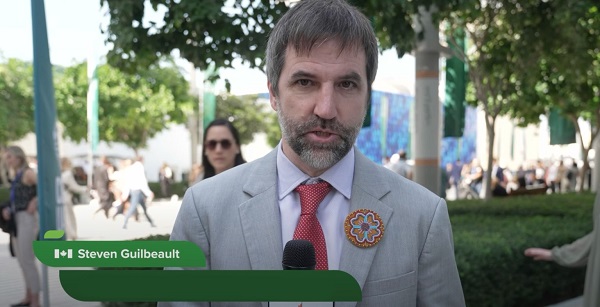
 Censorship Industrial Complex2 days ago
Censorship Industrial Complex2 days agoCanada To Revive Online Censorship Targeting “Harmful” Content, “Hate” Speech, and Deepfakes
-

 Alberta2 days ago
Alberta2 days agoAlberta refuses to take part in Canadian government’s gun buyback program
-
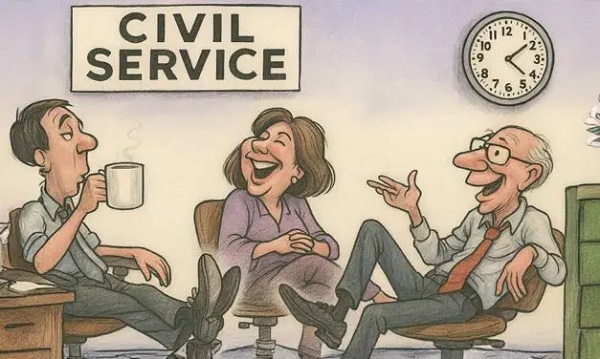
 Business1 day ago
Business1 day agoOttawa’s civil service needs a Chrétien-style reset
-
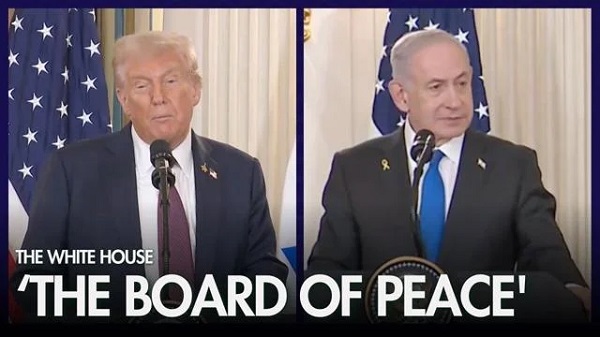
 International2 days ago
International2 days agoTrump, Netanyahu inch closer to peace plan for Gaza
-
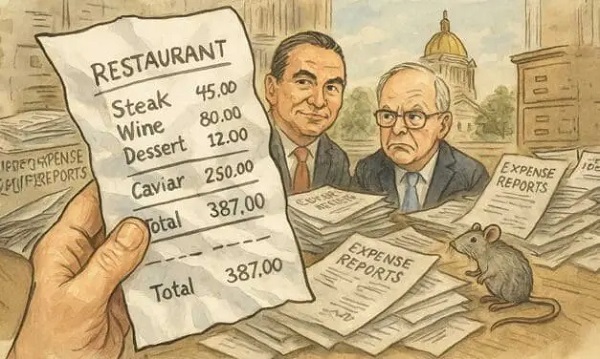
 Business1 day ago
Business1 day agoTaxpayers deserve proof of how politicians spend their money
-

 Alberta2 days ago
Alberta2 days agoAlberta puts pressure on the federal government’s euthanasia regime
-
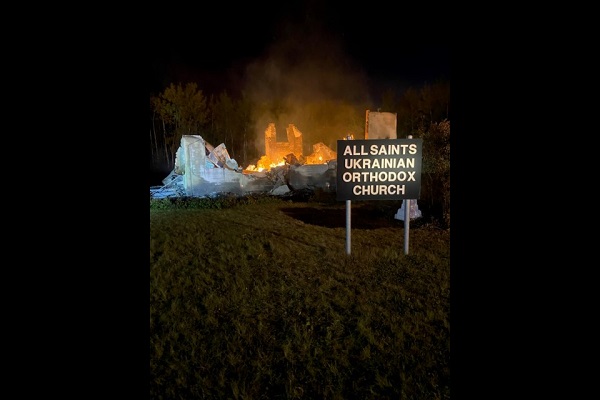
 Alberta2 days ago
Alberta2 days agoOrthodox church burns to the ground in another suspected arson in Alberta
-

 Fraser Institute1 day ago
Fraser Institute1 day agoAboriginal rights now more constitutionally powerful than any Charter right






